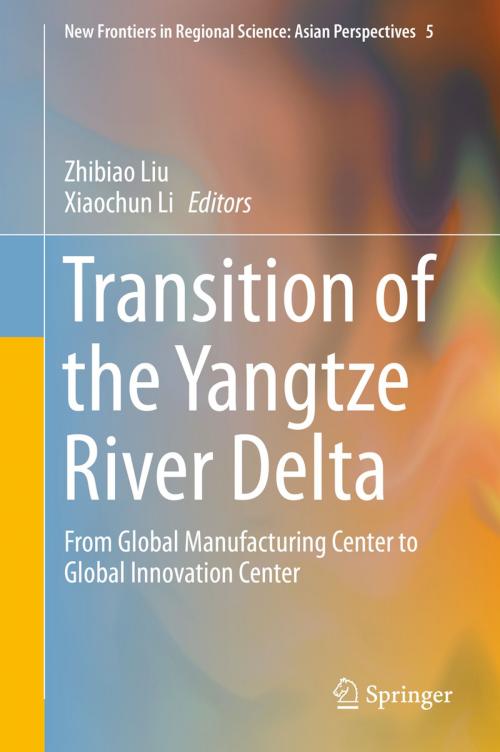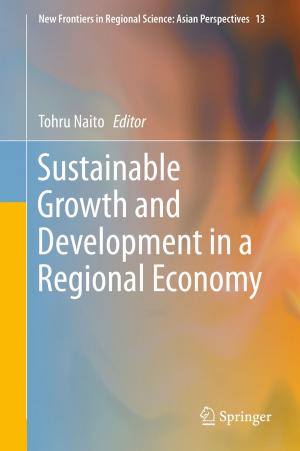Transition of the Yangtze River Delta
From Global Manufacturing Center to Global Innovation Center
Business & Finance, Economics, Urban & Regional, Economic Development| Author: | ISBN: | 9784431551782 | |
| Publisher: | Springer Japan | Publication: | February 2, 2015 |
| Imprint: | Springer | Language: | English |
| Author: | |
| ISBN: | 9784431551782 |
| Publisher: | Springer Japan |
| Publication: | February 2, 2015 |
| Imprint: | Springer |
| Language: | English |
This is the first English book that presents a professional analysis of the recent dynamic movement of the Chinese economy by focusing on the Yangtze River Delta region, which is the main engine of the Chinese economy. The impact of the international financial crisis on China’s economic development requires a change from the first wave of economic globalization oriented toward exports to the second wave of economic globalization characterized by expanding domestic demand. Taking this economic aspect into consideration, the following are proposed in this book: 1) expansion of the level of openness in the process of increasing domestic demand means shifting the industrial focus from manufacturing to the service industry; 2) promotion of the globalization of local services should be based on the globalization of local manufacturing; 3) the Yangtze River Delta region should aim at its own strategic positioning under new, changed circumstances and should achieve modernization in advance with the concept of integrative development; 4) Establishment of a support system is essential meanwhile for this area to develop an innovative economy and to promote the transition from manufacturing to promoting emerging industries, including a modern service industry. The book has an underlying concept, namely, that the key to economic transformation is to start the development of modern services and that only by transforming the development pattern of the service industry can the transition and upgrade of the economy be effectively achieved. For this purpose further urbanization and advancing the transformation from low-tech to high-tech industries by the effective development of industrial clusters is advocated. To ensure that these conclusions are based on a solid analysis, the authors draw heavily upon empirical analyses employing modern econometric methods and make use of economic theories such as endogenous growth theory and spatial economic theory.
This is the first English book that presents a professional analysis of the recent dynamic movement of the Chinese economy by focusing on the Yangtze River Delta region, which is the main engine of the Chinese economy. The impact of the international financial crisis on China’s economic development requires a change from the first wave of economic globalization oriented toward exports to the second wave of economic globalization characterized by expanding domestic demand. Taking this economic aspect into consideration, the following are proposed in this book: 1) expansion of the level of openness in the process of increasing domestic demand means shifting the industrial focus from manufacturing to the service industry; 2) promotion of the globalization of local services should be based on the globalization of local manufacturing; 3) the Yangtze River Delta region should aim at its own strategic positioning under new, changed circumstances and should achieve modernization in advance with the concept of integrative development; 4) Establishment of a support system is essential meanwhile for this area to develop an innovative economy and to promote the transition from manufacturing to promoting emerging industries, including a modern service industry. The book has an underlying concept, namely, that the key to economic transformation is to start the development of modern services and that only by transforming the development pattern of the service industry can the transition and upgrade of the economy be effectively achieved. For this purpose further urbanization and advancing the transformation from low-tech to high-tech industries by the effective development of industrial clusters is advocated. To ensure that these conclusions are based on a solid analysis, the authors draw heavily upon empirical analyses employing modern econometric methods and make use of economic theories such as endogenous growth theory and spatial economic theory.















